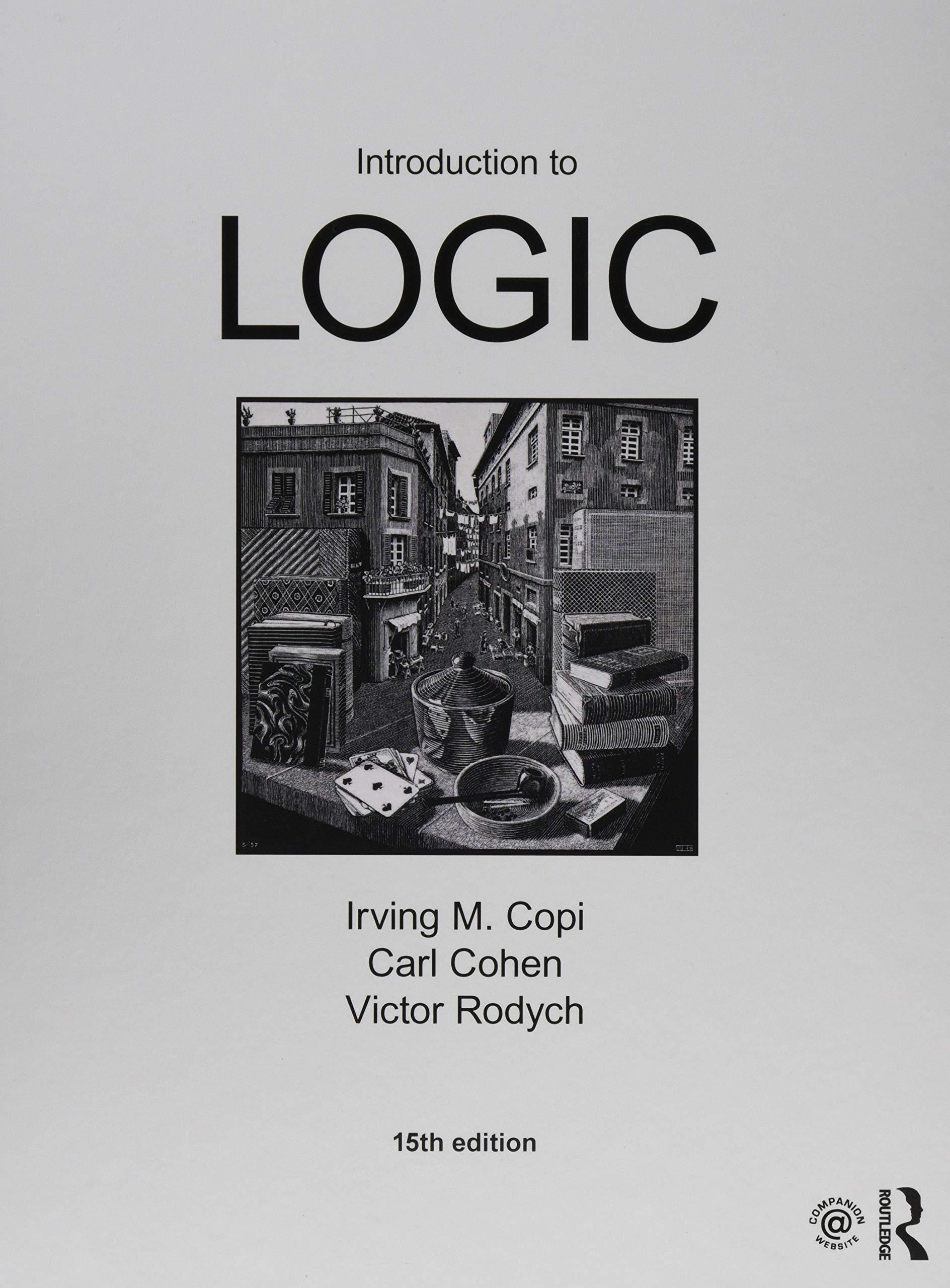For each of the following arguments, inferring just two statements from the premises will produce a formal
Question:
For each of the following arguments, inferring just two statements from the premises will produce a formal proof of its validity. Construct a formal proof for each of these arguments.
In these formal proofs, and in all the proofs to follow in later sections, note to the right of each inferred statement the rule of inference that is used to infer that statement. It is most convenient if the justification specifies first the number of the line (or lines) being used, and then the name (abbreviated) of the rule of inference that has been applied to those numbered lines.
(P1): (P ⊃ Q) ⊃ [(R ꓦ S) ⋅ (T ≡ U)]
(P2): (R ꓦ S) ⊃ [(T ≡ U) ⊃ Q]
∴ (P ⊃ Q) ⊃ Q
Fantastic news! We've Found the answer you've been seeking!
Step by Step Answer:
Related Book For 

Introduction To Logic
ISBN: 9781138500860
15th Edition
Authors: Irving M. Copi, Carl Cohen, Victor Rodych
Question Posted:





